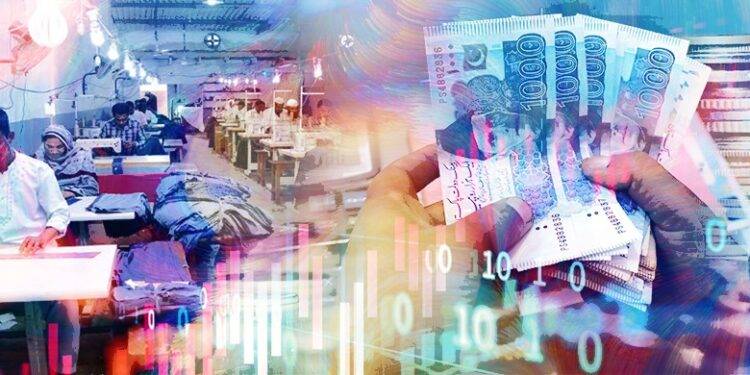
There are now plenty of indications to assume that the Pakistan Democratic Movement (PDM) government has been able to snatch an agreement out of the jaws of the IMF. The government’s team, led by Miftah Ismail, deserves praise, while the mercurial IMF should ideally undergo some introspection for imposing swingeing austerity on a developing country rattled by a perfect economic storm. It was only last year that the IMF was advising countries to use fiscal stimulus to prop up economies. Fiscal discipline is generally good, but this was not the most opportune time to force Pakistan to cough up a primary surplus. Still, a major economic disaster has been averted, albeit for now.
As a result of the last round of negotiations between the IMF and the government, some budget numbers were revised. For starters, the size of the budget was expanded by about 4%. There are also some interesting firsts in this budget that goes to show at least some out-of-the-box thinking. For instance, a new “poverty tax” has been imposed on firms making more than PKR 150 million per year.
However, the economy is still not out of the woods and Team Miftah will still have to revise its calculations. For instance, the estimated inflation in the coming year at 11.5% is a non-starter. Given the massive increase in fuel and electricity prices, even conservative estimates put inflation in the neighborhood of 20%. This massive increase in inflation will push millions of people below the poverty line in Pakistan—10 million is a rough estimate. Moreover, given the hit to household incomes due to inflation, fiscal consolidation and the coming increase in policy rate only means that economy growth will be confined in the 2.5-3% leading to little, if any, job creation.
On top of all this, news coming out of the US this week, indicate that the world’s biggest economy is now at the cusp of a recession. This impending recession will create additional problems for Pakistan as the US remains the largest destination for Pakistani exports, by far. A stalling US economy would also decrease Pakistan’s export earnings, thereby widening the projected current account deficit. Moreover, as people’s incomes are invariably hit in the US, remittances could decline and further deteriorate the current account.
Additionally, oil price may have come down—for now—but, the spectre of Russia stopping gas supplies to Europe is causing sleepless nights for many European policymakers. As some accuse Russia of weaponizing its energy exports, there are now plans afoot for rationing gas in Germany. Germany is now even contemplating reopening mothballed coal plants in order to ensure energy supplies for its economy. What this points out is that in that energy prices, including gas and coal, will show significant volatility and thus likely create problems for Pakistani consumers.
Against this rather scary economic backdrop, documents reveal that the government has budgeted the additional assistance for 14 million households at PKR 2,000 per family for only one quarter. Given the rapidly rising inflation and poverty a lot more needs to be done. Government must find ways and means for making this assistance a permanent feature. One way in which this may be done is through the imposition of a special or ‘hypothecated tax,’ meaning that the revenue from that tax will be dedicated for the specific purpose of funding BISP only. The proposed poverty tax is a good idea but it is not clear whether it is going to used exclusively for assisting those who fall below the poverty line.
Pakistan’s government has been able to partially stabilise the economy, but new challenges have simultaneously emerged in the shape of the impending US recession. There is no doubt that inflation will hit the vulnerable segments of the society. The proposed poverty tax’s ambit can be enlarged so that it can also be imposed on the purchases of luxury items like big cars. In this way, revenue streams from such taxes can be earmarked exclusively for the BISP. In sum, despite meagre resources and a challenging political economic environment, the government must find innovative ways for assisting the poor people in these trying economic times.

